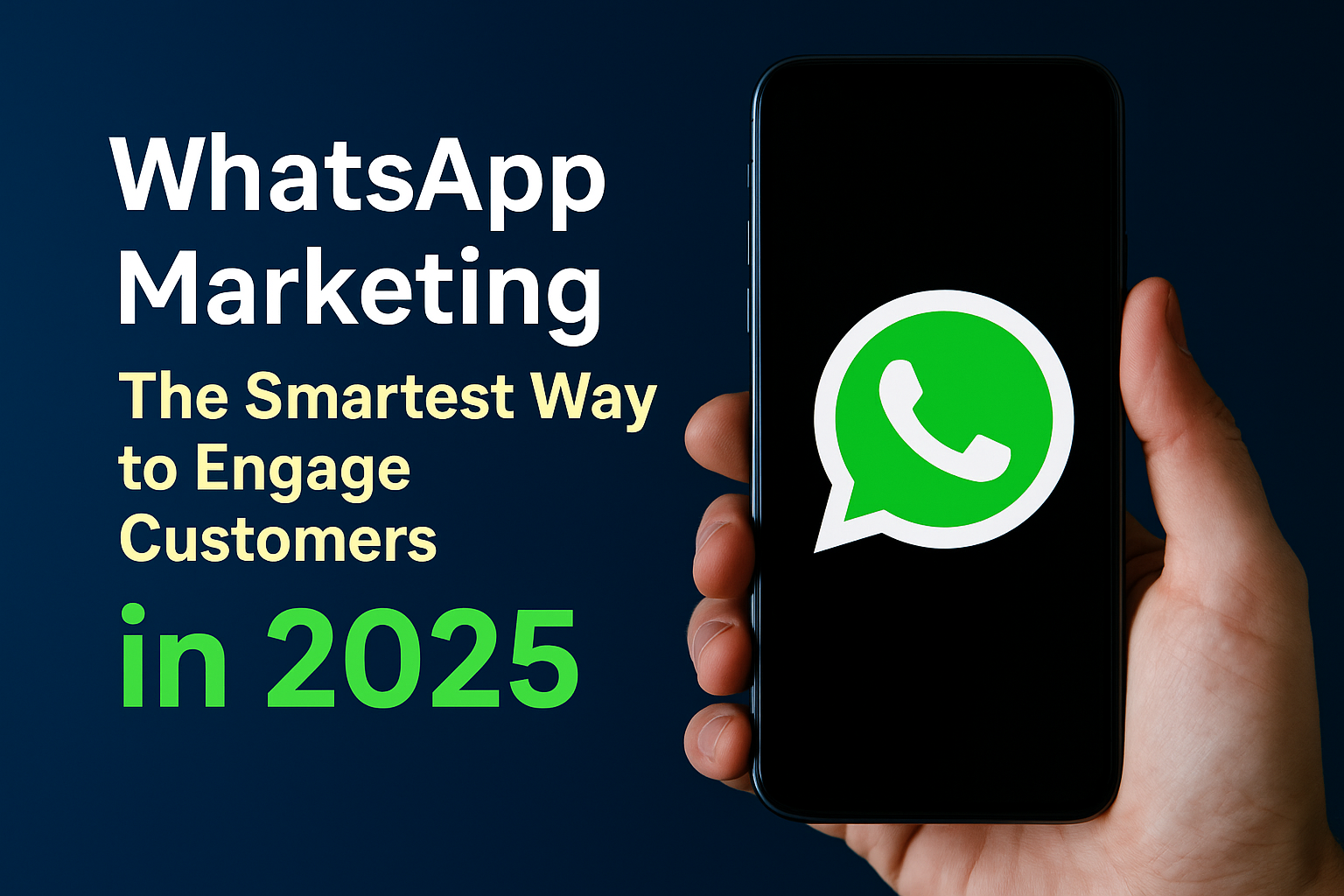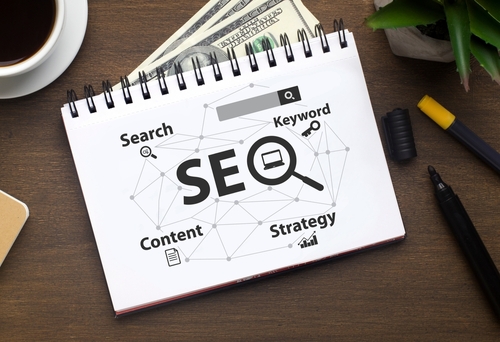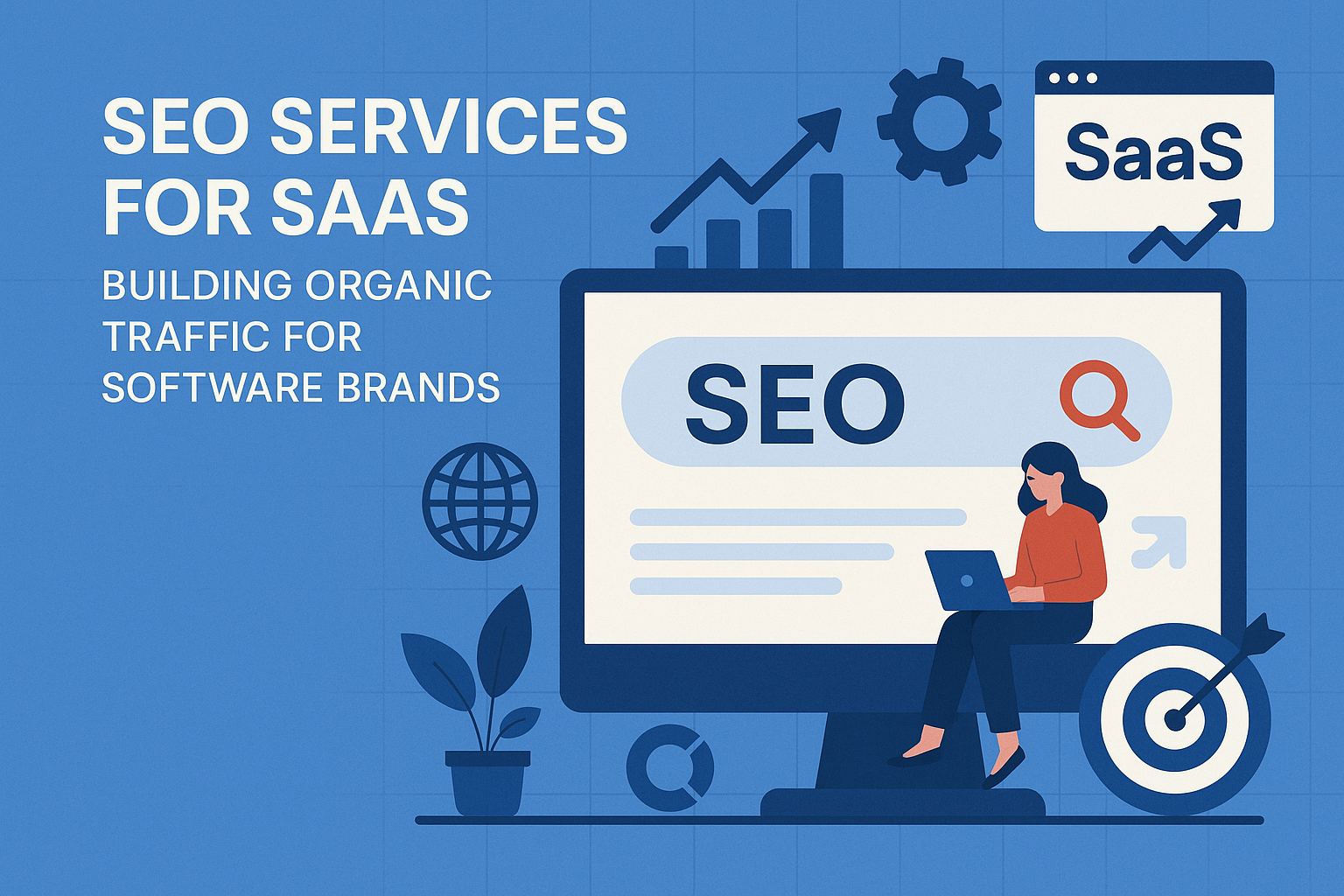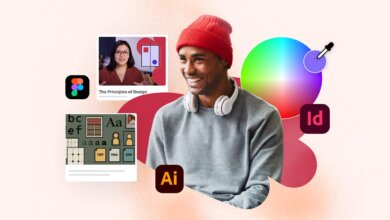
WhatsApp Marketing: The Next Big Thing in Digital Communication
As traditional marketing channels become saturated and email open rates continue to drop, brands are turning to more direct, personal communication tools. Enter WhatsApp marketing a fast, cost-effective, and highly engaging way to connect with your audience where they spend most of their time.
With over 2 billion users globally and a massive footprint in India, WhatsApp is no longer just a messaging app it’s a powerful business tool. In this post, we’ll explore what WhatsApp marketing is, how it works, and how businesses can use it to boost customer engagement, drive conversions, and build lasting relationships.
What Is WhatsApp Marketing?
WhatsApp marketing involves using WhatsApp Business or WhatsApp API to send promotional messages, alerts, reminders, product updates, and customer support messages to your users.
It’s permission-based meaning users must opt in and therefore has high open rates (up to 98%) compared to email or SMS.
Key Features of WhatsApp Marketing
-
Broadcast Messages to subscribed users
-
Automated Responses through chatbots or templates
-
Interactive Catalogs with product listings
-
Personalized Messaging using name, product details, location
-
Click-to-WhatsApp Ads from Facebook & Instagram
-
End-to-End Encryption and trust-based communication
-
Quick Replies and customer service integration
Benefits of WhatsApp Marketing for Businesses
1. High Engagement Rates
Messages sent via WhatsApp are opened almost instantly. It’s the closest thing to having a direct conversation with your customer.
2. Two-Way Communication
Unlike one-sided promotional platforms, WhatsApp enables real-time responses. This creates opportunities to resolve customer queries quickly and even promote additional services or products.
3. Multi-Purpose Use
Whether it’s a flash sale alert, cart recovery message, appointment reminder, or feedback request—WhatsApp can do it all. Its flexible nature supports both marketing and operational communication.
4. Trust & Personalization
Unlike email or generic ads, WhatsApp messages feel more personal and are trusted by users. The ability to use customer names, order history, and previous chats creates a personalized experience that boosts brand loyalty.
Why WhatsApp Marketing Works So Well
WhatsApp’s simplicity is its strength. Unlike email inboxes cluttered with spam or social media flooded with ads, WhatsApp offers a focused, distraction-free environment. This makes users more likely to engage with messages, click on links, and take desired actions.
Additionally, users don’t need to download another app. Since WhatsApp is already part of their daily routine, businesses can seamlessly integrate into their communication habits.
Furthermore, compared to traditional SMS, WhatsApp allows rich media sharing including images, PDFs, videos, and interactive buttons providing more engaging content delivery.
Use Cases by Industry
-
E-commerce: Order confirmation, shipping updates, abandoned cart reminders
-
Healthcare: Appointment reminders, prescription refills, lab report sharing
-
Education: Class reminders, fee updates, student engagement
-
Real Estate: Property alerts, site visit confirmations, documentation follow-up
-
Retail & Restaurants: Loyalty programs, discount codes, reservation confirmations
-
Travel & Hospitality: Booking confirmations, itinerary sharing, real-time updates
-
Finance: EMI reminders, account updates, document requests
Tools and Platforms for WhatsApp Marketing
To scale effectively, businesses often use platforms that offer WhatsApp Business API integration. These tools unlock advanced features such as:
-
CRM integration for centralized communication
-
Automated chatflows to handle queries 24/7
-
Analytics and reporting for performance tracking
-
Contact segmentation for targeted campaigns
-
Campaign scheduling for timed broadcasts
Some popular tools include:
-
Zoko
-
WATI
-
Interakt
-
Twilio
-
AiSensy
-
Meta’s WhatsApp Cloud API
These platforms also help manage compliance and ensure messages are delivered using approved templates.
Is WhatsApp Marketing Legal?
Yes, WhatsApp marketing is legal under the following conditions:
-
Users opt-in before receiving promotional messages
-
You use approved message templates for outbound communications
-
You follow WhatsApp’s commerce policy and data privacy guidelines
Failure to comply may lead to account suspension or permanent ban from using the Business API.
WhatsApp also enforces strict guidelines to maintain a spam-free environment, which makes the platform more trustworthy for users and effective for ethical marketers.
Best Practices for WhatsApp Marketing
To make the most of your WhatsApp marketing campaigns, consider the following tips:
-
Respect user privacy and avoid sending messages too frequently
-
Segment your audience for targeted and relevant messaging
-
Use interactive content like buttons, product catalogs, and media
-
Track metrics like read rates, click-throughs, and responses
-
Regularly refresh templates and content to keep messages engaging
-
Stay compliant with platform guidelines to avoid penalties
Final Thoughts
WhatsApp marketing is quickly becoming one of the most powerful tools in a brand’s digital marketing toolkit. Its open rates, speed, and conversational format make it ideal for today’s mobile-first audience.
Whether you’re a small business looking to connect personally with your customers or a large enterprise needing automation at scale, WhatsApp offers unmatched versatility and impact.
From product updates and promotions to customer service and retention, the possibilities are endless. If you’re not using WhatsApp as a marketing channel yet, now is the time to start.








